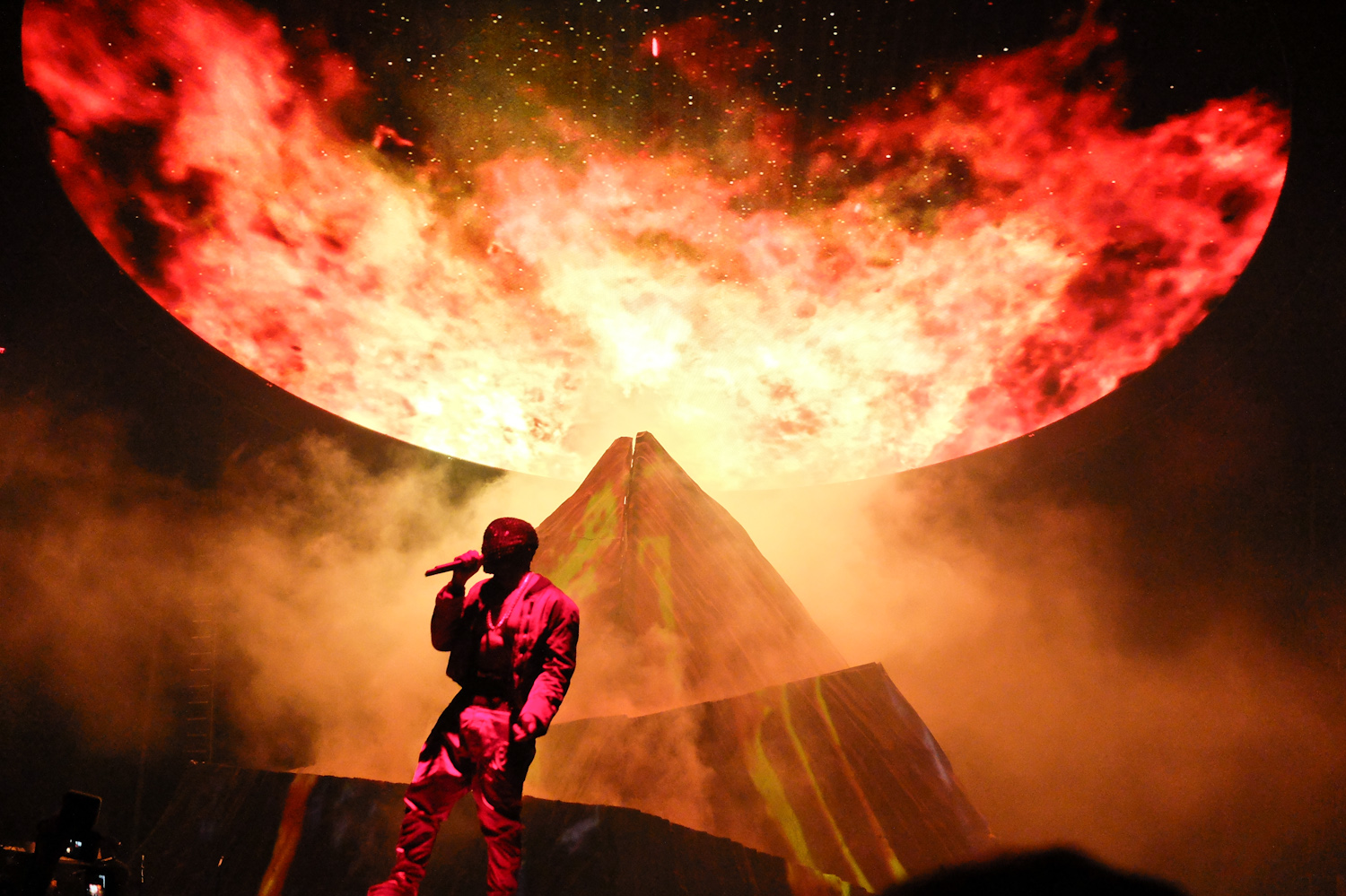
Recently, a few of the most devoted Church of Kanye worshippers at the Highlander gathered and discussed the career of the Lord and Savior himself, Kanye West. What emerged from that discussion was the following article. This piece is not your standard album rankings drivel, but rather an assessment. One that examines each of Kanye’s solo projects in chronological order, assesses their cultural significance and acknowledges both ‘Ye’s genius and shortcomings throughout his various epochs. The themes of “Picasso” and “Escobar” were inspired by ‘Ye’s latest work, “The Life of Pablo” — “Picasso,” referring to famed artist, Pablo Picasso and “Escobar,” referencing infamous Colombian drug lord, Pablo Escobar. Both of these characters serve to reflect the contrasting elements of Kanye’s persona.
The College Dropout (2004) – “An artist’s first stroke”
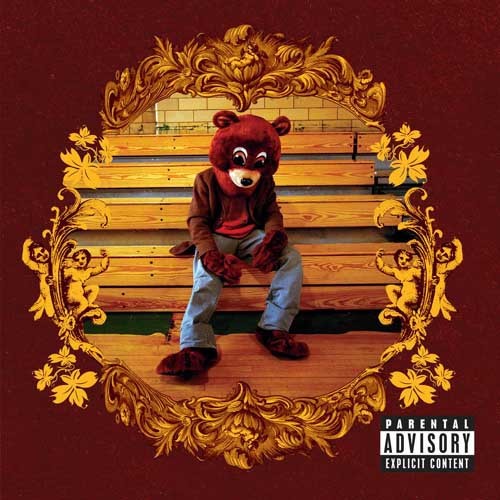
If you ever wanted to fully understand Kanye’s goals and ambitions, this is the album to listen to. The tracks are packed with down-to-earth topics many young adults struggle with: materialism, ambition, religion, family and independence. At the time, hip-hop was dominated by gangster rap, and “College Dropout” offered listeners a refreshing, light-hearted breath of air. On the third track of the album, “Graduation Day,” we can hear the ambition bleeding out of Kanye’s lyrics after the dramatic skit with John Legend singing, “I’m no longer confused, but don’t tell anybody. I’m about to break the rules, but don’t tell anybody. I’ve got something better than school, but don’t tell anybody.” In retrospect, Kanye is setting up his entire career with those bars. Despite the production being incredibly well-mastered, it is clear that Kanye is still refining his craft as a lyricist. Lyrics from tracks like “Family Business” and “Last Call” help the audience to not only view Kanye in a humble, ambitious light, but also lays the groundwork for Kanye’s musical development. – Cameron Yong, Video Editor
Late Registration (2005) – “The affirmation of arrival”
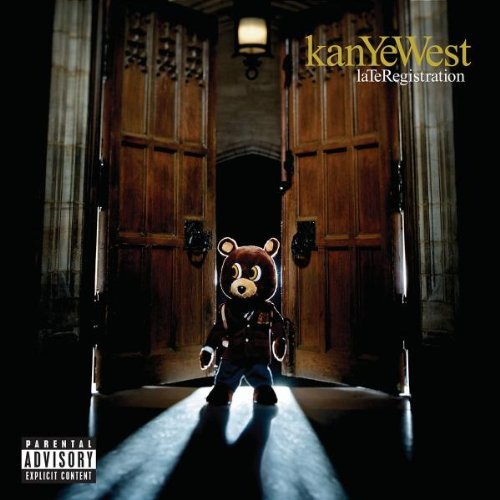
It only took two albums for Kanye to assert himself as the most disruptive force in pop culture. Contrary to traditional belief this did not come by way of a reckless remark directed toward a particular commander-in-chief, but rather through ‘Ye concocting an album in “Late Registration,” which effectively navigated beyond the strict boundaries of hip-hop in the era. On “Late Reg.,” ‘Ye took a unique avenue toward relative audacity whilst bypassing the hostility of 2005’s hip-hop scene and rather opting for cheeky, candid lyrical expression underscored by soulful influences with orchestral textures. While the brash conceit and misogynistic views that currently define ‘Ye’s modern day persona do make a brief, yet unfortunate appearance on “Late Reg.,” we moreso find ‘Ye consumed with tackling issues such as global child labor laws (“Diamonds”) and racial inequality (“We Can Make it Better”).
Thus, this album can not only be deemed a greater confirmation of Kanye’s proficiency as an envelope-pushing artist but simultaneously one that cultivated the seemingly unfiltered political voice he boasts today. “Late Reg.” was a rap album so groundbreaking that the crevices it created expanded into artistic avenues from which artists unabashedly continue to draw from. It was political at a time when hip-hop had seemingly lost touch with its mobilizing potential, wholly soulful and orchestral at a time when rap was dangerously approaching a sonic status quo. As has now become standard, ‘Ye disrupted the norm on his sophomore release with Picasso-esque chutzpah, ultimately declaring his arrival as hip-hop’s next great one. – Myles Andrews-Duve, Sports Editor
Graduation (2007) – “The third of a trilogy”
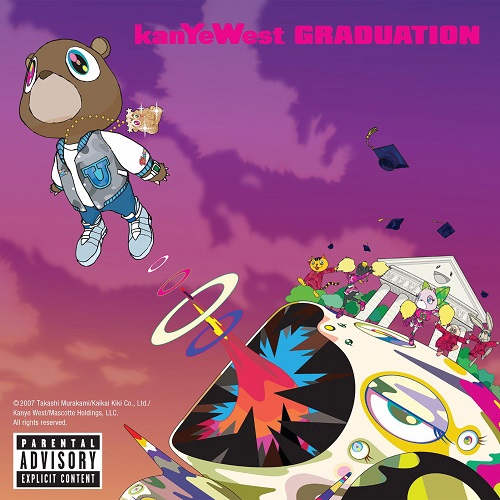
Though many see Kanye’s third studio album as the weakest link in the tapestry of his esteemed discography, there’s no denying that it marked a turning point — one in which his sound began to achieve ubiquity in discotheques and dance floors across the world. “Graduation” can be succinctly summarized as West’s home-run experimentation with anthemic sounds that stem from the world of electronic music. From the Daft Punk sample in “Stronger” to the synth stabs and vocal chops in “Flashing Lights,” “Graduation” is a record ahead of its time, featuring a bevy of similar sounds that are still filling nightclubs and driving Super Bowl commercials to this day. Even a cursory glance at the tracklist of “Graduation” will show that this record marked the early stages of Kanye’s egoist persona being thrust into the mainstream. Whether it’s the self-serving lyrics of “Can’t Tell Me Nothing” or the hedonistic desires divulged in “Drunk and Hot Girls,” there’s no denying that “Graduation” was a pivotal stepping stone in the development of today’s Kanye. – Cody Nguyen, Managing Editor
808s & Heartbreak (2008) – “The ‘Blue Period'”
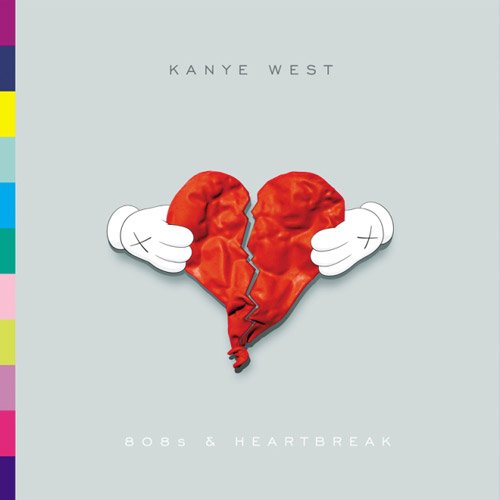
Following the trifecta of near-perfect albums that culminated with “Graduation” it seemed Kanye had nowhere else to go. He had virtually perfected his sound, finally nailing the sampling and orchestral sounds he experimented with early in his career. Then came “808s & Heartbreak,” which is perhaps his most ambitious album to date, and undoubtedly his most underrated. “808s” swept aside the sonic palette he had cut his teeth on, using autotuned vocals and trip-hop influenced beats. “808s” gives us a fuller portrait of both the artist and the person, revealing his vulnerabilities. In many ways, “808s” can be considered a failure. It was critically panned when it came out, and sometimes the album just doesn’t work out the formula right: The autotune can be heavy-handed and doesn’t always merge with the production, giving some of the tracks an affected quality. However, “808s” stands as Kanye’s most progressive album to date, one which paved the way for artists such as Drake, the Weeknd and Frank Ocean to develop their sound. Hip-hop, with its militant urban origins, had never been great at expressing grief, but Kanye was able to expand its expressive capacity by incorporating R-and-B and electronic soundscapes. At its high point, “808s” brilliantly plays with blues and soul textures to create a beautiful ode to heartbreak. – Faraz Rizvi, Assistant Radar Editor
My Beautiful Dark Twisted Fantasy (2010) – “The ‘Rose Period'”
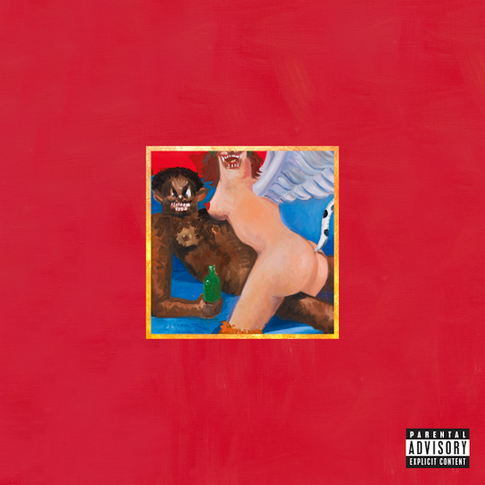
Who else but Kanye West would’ve created an album so disgustingly beautiful? Lurid lyrics of sex, drugs and the celebrity spotlight, and a cacophony of music (the dirty guitars on “Gorgeous,” the uniformity of the piano strikes on “Runaway”) are joined together to make “MBDTF” the most critically acclaimed album of its decade. With each lyric so meticulously chosen, every note and drum beat layered with meaning and each spoken word message so well-crafted, the infusion of these element become an indispensable element of the album. West’s demons are at the forefront of “MBDTF” as he unapologetically embraces the public’s distaste toward him.
Nicki Minaj’s warning on “Dark Fantasy,” steadily introduces this demonic imagery and hedonistic pleasure, which peak during his lyrical depictions of sex, twisting pleasure into pain on “Hell of a Life.” All of West’s lyrical contradictions on the Bon Iver-inspired “Lost in the World” perfectly capture his isolation amid all of the cameras and tabloids. From the guest verses (Jay-Z dropping the hardest verse of his career on “So Appalled”), to the spoken word outro on “Who Will Survive in America” “MBDTF” becomes West’s “Persistence of Memory,” a work which will continue to define his career into the next century. – Aaron Grech, News Editor
Yeezus (2013) – “Musical cubism”
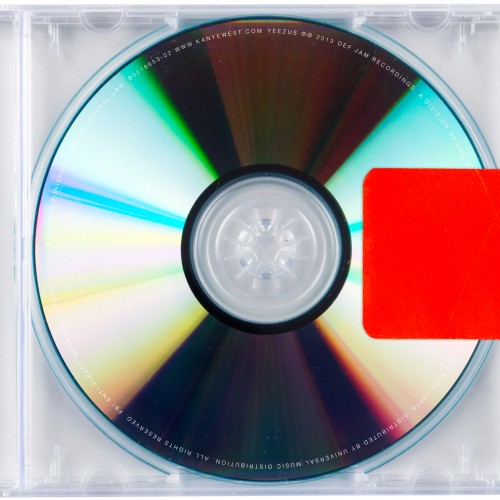
Only Kanye West would threaten commercial suicide after releasing the greatest hip-hop album of the decade. “Yeezus” aimed to break down every conceived notion of hip-hop that people had during a period dominated by over-the-top production and glamorized party anthems. Rather, Kanye blends punk, industrial and electronic music in a minimalist manner. In many ways, “Yeezus” was a psychoanalysis of Kanye. He was angry — very, very angry. From “Black Skinhead” to “New Slaves” and “Blood on the Leaves,” Kanye’s dark and gritty textures are embodied through unambiguous lyricism: “Y’all ‘bout to turn shit up, I’m ‘bout to tear shit down.” Even in the height of his rage, he managed to juxtapose this animosity with “Guilt Trip” and “Bound 2” which unveil his inner vulnerability. The songs themselves feature a strong dichotomy of cold, electronic beats featuring lush and layered orchestral samples. The most disturbing part of the album the apparent misogyny ingrained within the lyrics. In the opening song of the album, “On Sight,” Kanye ruthlessly screams, “We got this bitch shaking like Parkinson’s.” This project showcased every facet of Kanye’s personality: The angry Kanye, the sentimental Kanye and unfortunately, the misogynistic Kanye. – Osama Khan, Assistant Sports Editor
The Life of Pablo (2016) – “A God Dream”
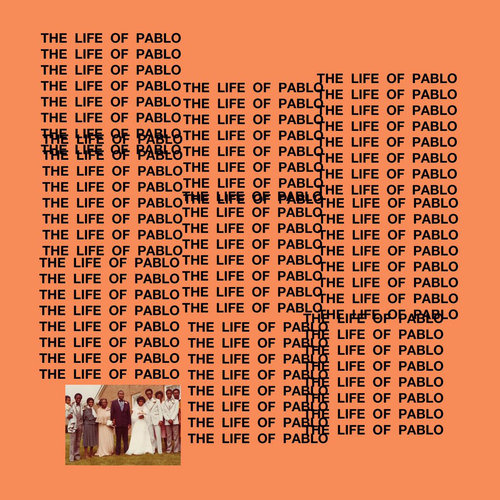
In many ways, it’s difficult to critically appraise this album, and fit it into Kanye’s chronology as an artist, given how recently it debuted.The airy choir vocals of the intro, “Ultra Light Beam,”, is the most elegant song Kanye has ever composed. Where tracks like “Real Friends” and “FML” bring back the introspective cadences of “808s & Heartbreak,” “Freestyle 4” and “Famous” play around with the aggressive synth textures of Yeezus. Moreover,the trap-influenced “Father Stretch My Hands” demonstrates Kanye’s ability to adapt to modern sound. At the same time, the tone-deaf sexism that made “Yeezus” problematic is just as present on “TLOP”, like when he raps the already infamous line, “Me and Taylor may still have sex / I made that bitch famous.” Kanye has a history of using derogatory remarks about women, and this sexism unfortunately rears its ugly head here as well. The elegance of the gospel vibe in tandem with the problematic lyricism bring to the forefront the contrasting elements of Kanye’s personality. While it will take time to seriously assess “The Life of Pablo’s” cultural significance it is safe to say this album masterfully coalesces the variegated elements of Kanye’s ever-transformative sound. – Faraz Rizvi, Assistant Radar Editor








